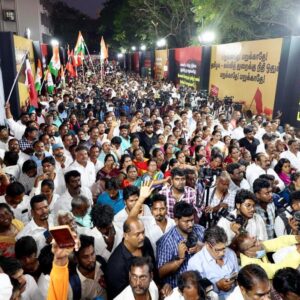Assessing the Impact of Surveillance Technologies on the Freedom and Integrity of the Press
Key Metrics:
- Surveillance Growth: According to a 2023 study, global spending on surveillance technology has surpassed $120 billion, reflecting its increased integration into various sectors, including media.
- Journalist Targeting: Reports from the Committee to Protect Journalists (CPJ) in 2023 highlight that incidents of journalists being monitored have risen by 35% globally over the past five years.
- Legal Frameworks: India’s Personal Data Protection Bill, still pending as of 2023, aims to regulate the use of personal data and surveillance but lacks specific protections for journalists.
In an era where surveillance technology is becoming more sophisticated and pervasive, the implications for journalism are profound and troubling. Modern surveillance capabilities are not just tools for security agencies; they have also become a concern for journalists who often find themselves under scrutiny, potentially compromising their ability to report freely and protect their sources.
The Dual-Edged Sword of Surveillance in Journalism
Surveillance technology, designed ostensibly for enhancing security, has been leveraged in ways that can also impede journalistic freedom. Across the globe, and particularly in India, journalists face the challenge of government and corporate surveillance, impacting their work’s confidentiality and integrity. The use of tools like spyware, which can covertly monitor a journalist’s phone without their knowledge, poses a serious threat to the protection of source anonymity—a cornerstone of press freedom.
For instance, the use of advanced spyware like Pegasus has been reported to target journalists and activists, leading to significant concerns about state overreach and the erosion of democratic freedoms. In India, such instances have sparked debates on the need for stringent regulations and oversight over the deployment of surveillance technologies.
Surveillance’s Impact on Investigative Journalism
Investigative journalists, who often tackle sensitive topics involving powerful entities, are particularly vulnerable to surveillance. The fear of being watched can deter journalists from pursuing stories about corruption, human rights abuses, or corporate malfeasance. This self-censorship not only stifles public discourse but also diminishes the media’s role as a watchdog of democracy.
Moreover, the psychological impact on journalists who find themselves under constant surveillance can be profound, leading to stress and a decrease in professional efficacy. The atmosphere of distrust engendered by surveillance undermines collaborative investigations and can isolate journalists from potential sources.
Global Comparisons and Lessons
Internationally, countries like Germany and Canada have established stricter safeguards to protect journalists from unwarranted surveillance, including laws that penalize the unauthorized surveillance of the press. These measures provide a model that India could consider, to ensure that journalists can operate without fear of undue monitoring.
Advocating for Stronger Protections
The need for robust legal protections in India is urgent. The pending Personal Data Protection Bill presents an opportunity to embed protections for journalists against surveillance. Media advocacy groups, legal experts, and journalists themselves must push for clauses that specifically safeguard journalistic activities to maintain a healthy, functional democracy.
Conclusion
As surveillance technology evolves, so too must the mechanisms to protect journalism’s fundamental principles. The balance between national security and press freedom is delicate but essential. Ensuring that journalists can report without the fear of surveillance is crucial for maintaining the transparency and accountability that underpin democratic societies. Are we watching, or are we being watched? For journalists, the answer to this question will determine the future of journalism itself.












